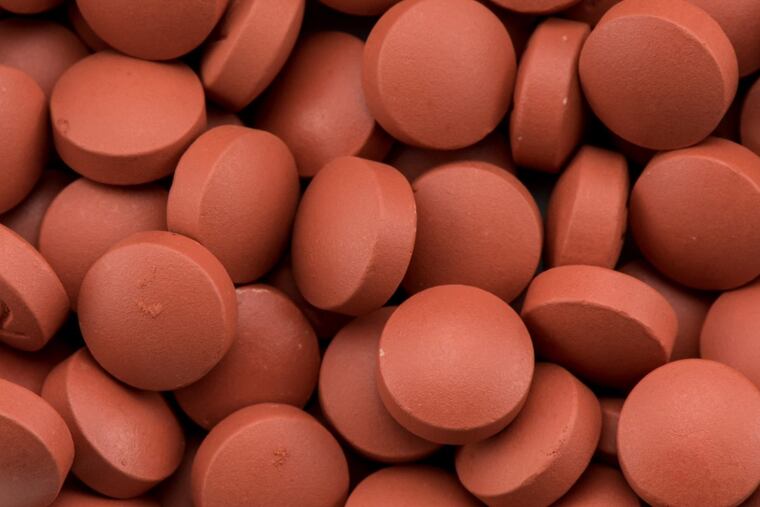Ibuprofen appears to mess with male hormones. Should you be worried?
In a study published earlier this month, researchers found that a concentrated dose of the over-the-counter painkiller taken by young, healthy men appears to be linked to infertility.

In recent decades, prompted by concerns that men's sperm quality is declining, researchers have looked at things they suspect of potentially disrupting the body's endocrine system — from chemicals in water bottles to WiFi laptops to wearing tight underwear instead of boxers.
You can add ibuprofen to the list.
In a study published earlier this month in the Proceedings of the National Academy of Sciences, researchers found that a concentrated dose of the over-the-counter painkiller taken by young, healthy men appears to be linked to a testicular condition that typically only appears at middle age and has been linked to infertility.
The experiment involved 31 men under 35 in Denmark and France who were split into two groups, with the first taking 1,200 milligrams of ibuprofen each day for six weeks and the other a placebo. While 1,200 milligrams of ibuprofen is considered on the high side for general aches, pains and fever, it's not unusual for doctors to prescribe twice that much for athletes.
In two weeks, the concentration of testosterone hormone dropped as ibuprofen concentrations grew in the blood of those taking ibuprofen – resulting in the men having a condition known as hypogonadism. Bernard Jégou, a co-author at French National Institutes of Health and Medical Research, and co-authors wrote that ibuprofen appears to "affect the hormonal balance in adult men" and "alters human testicular physiology" – creating a situation where the body has to work harder to maintain some degree of normal testosterone.
Studies about environmental factors that may impact male fertility have become more urgent with growing evidence that sperm quality is falling globally. While this worry has been around for a long time, there was a lot of skepticism about it until recently. In July 2017, in a large analysis published by the American Society of Andrology,researchers looking at data from 42,000 men between 1973 and 2011 confirmed that there appears to have been a 52.4 percent drop in sperm concentration in those 40 years.
The current study focuses on a different measure of the male reproduction system – testosterone production rather than semen analysis.
Shanna Swan, a professor at Icahn School of Medicine at Mount Sinai and co-author of the 2017 male sperm study, said that the team that worked on the ibuprofen study is known for its pioneering work on the effect of analgesics, until now focused largely on acetaminophen (the active ingredient in Tylenol), on reproductive function.
That research focused on a link between prenatal exposure to acetaminophen and a condition known as cryptorchidism, or the absence of one or both testes from the scrotum, in both animal models and humans. Swan explained that "a large body of evidence points to the role of prenatal exposure to environmental factors that alter the in utero hormonal milieu, causing decreased male reproductive health that persists throughout life." However, she said, "this would not likely be an issue for ibuprofen" because it's not typically recommended for use during pregnancy.
Michael L. Eisenberg, director of male reproductive medicine and surgery at Stanford and who was not involved with the new study, said the work is very important and points to a need for additional research on the topic.
"I do not think the message should be to stop taking ibuprofen. Rather this is an important but small study. Larger studies with more follow up are needed to understand the implications of ibuprofen use," he said.
Eisenberg also wondered, "It may be the shorter term use, which would be more common for most, would not have these effects."
Jesse N. Mills, an associate clinical professor at UCLA Health, said the results that "these guys did have a pretty profound effect on their hormone levels post exposure . . . brought up a lot of issues." Paradoxically, he said that previous studies have shown that ibuprofen and other compounds in the same class of nonsteroidal anti-inflammatory drugs, or NSAIDs, can have a positive effect on measures of semen quality. "It may work like an antioxidant," he said,referring to compounds in foods like blueberries and pomegranate that may have the ability to neutralize harmful molecules in cells.
Mills said there's not enough information yet to advise patients to change the way they take ibuprofen. However, he added: "I have a lot of fit guys in my practice that are trying to initiate pregnancies. I may tell them to be a little more cognizant about how much they are taking."